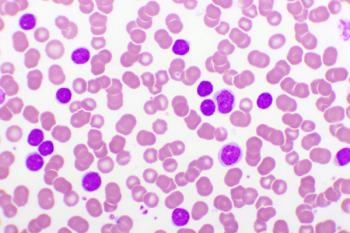
The allogeneic off-the-shelf CD22-directed T-cell product, UCART22, showed early signs of activity and no evidence of unexpected toxicities for adult patients with relapsed/refractory CD22-positive B-cell acute lymphoblastic leukemia.

Your AI-Trained Oncology Knowledge Connection!


The allogeneic off-the-shelf CD22-directed T-cell product, UCART22, showed early signs of activity and no evidence of unexpected toxicities for adult patients with relapsed/refractory CD22-positive B-cell acute lymphoblastic leukemia.
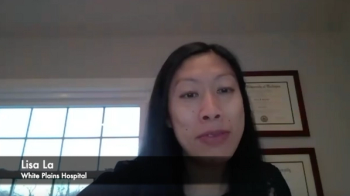
The clinical researcher spoke about what she hopes will occur in multiple myeloma research over the next 5 years.
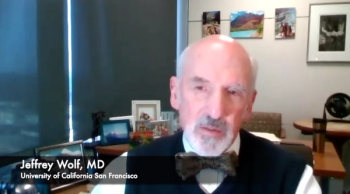
Wolf discusses the potential for emerging next-generation CAR T-cell treatment and the future of treating patients with multiple myeloma.
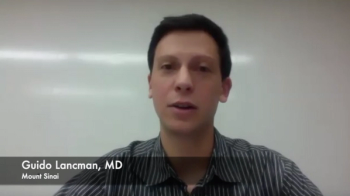
The hematology and oncology fellow at the Icahn School of Medicine at Mount Sinai discussed exciting treatment options for patients with multiple myeloma that are being presented at ASH this year.
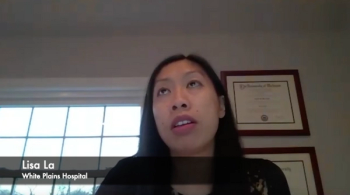
The clinical researcher spoke about the research that she is most excited to review at ASH this year.
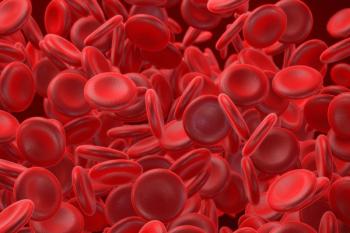
Patients with hematologic malignancies were found to be at increased risk for significant morbidity and mortality from COVID-19, and the risk of death appeared to be greatest in those who were older, had more severe infection, a poorer prognosis, or who decided to forego intensive treatment.
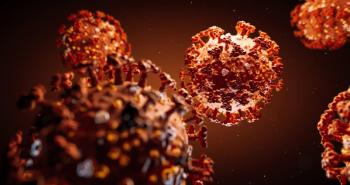
Findings from a preclinical study suggested ALVR109 could be a safe and effective treatment for the coronavirus disease 2019.

A phase 1 trial found that MEDI-570 demonstrated clinical activity with durable responses, as well as acceptable safety and tolerability in patients with relapsed or refractory angioimmunoblastic T-cell lymphoma and peripheral T-cell lymphoma.
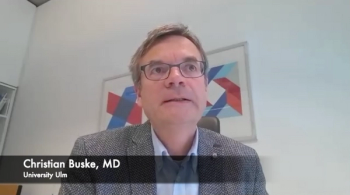
The lymphoma expert spoke about the research being presented at the 2020 ASH Annual Meeting and what he believes has the potential to be most influential for treating this patient population.
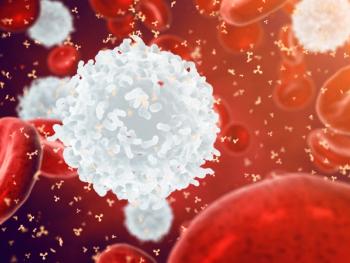
Idecabtagene vicleucel yielded a clinically meaningful improvements in the quality-of-life of triple-class exposed patients with relapsed/refractory multiple myeloma.
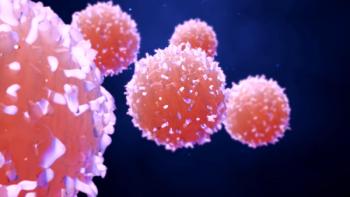
Patients with heavily pretreated multiple myeloma maintained durable responses with idecabtagene vicleucel, according to updated findings presented from the phase 1 CRB-401 trial.

The CAR T-cell therapy elicited a 92% ORR, with high rates of durable responses in patients with indolent non-Hodgkin lymphoma.

Treatment with the oral agent showed sustained health-related quality of life compared with placebo in patients with acute myeloid leukemia, according to results of the phase 3 QUAZAR AML-001 trial.
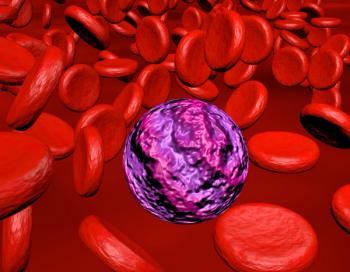
A novel CD20xCD3 bispecific antibody, odronextamab, continues to show intriguing antitumor activity and an acceptable safety profile in patients with relapsed/refractory B-cell non-Hodgkin lymphoma, including those who have previously received chimeric antigen receptor T-cell therapy.
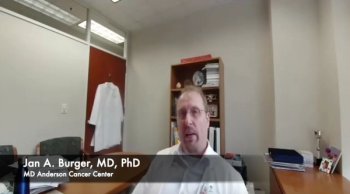
The leukemia expert discussed exciting research being presented at this year’s ASH Annual Meeting.

Treatment with the CAR T-cell therapy ciltacabtagene autoleucel led to a high response rate and an acceptable safety profile at the recommended phase 2 dose in patients with relapsed or refractory multiple myeloma.

The telomerase inhibitor demonstrated improved overall survival spleen response, and symptom response in patients with myelofibrosis.
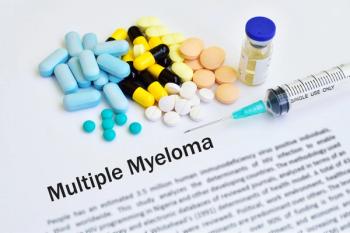
The phase 3 BOSTON study demonstrated superior PFS and ORR with selinexor (Xpovio), bortezomib (Velcade), and dexamethasone in patients with relapsed/refractory multiple myeloma.

Study results showed that adding navitoclax to ruxolitinib resulted in a clinically meaningful improvement in spleen volume and total symptom score in patients with myelofibrosis who no longer benefited from prior ruxolitinib therapy.

Treatment with momelotinib improved overall survival and sustained efficacy outcomes in patients with intermediate- or high-risk myelofibrosis.
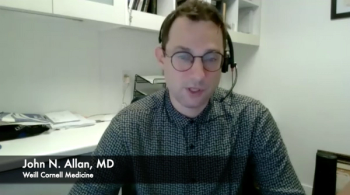
The assistant professor of Medicine in the division of Hematology and Medical Oncology at Weill Cornell Medicine spoke about exciting research coming out of ASH for patients with chronic lymphocytic leukemia.
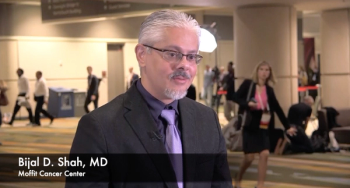
Bijal D. Shah, MD, discusses the progress made regarding CAR T-cell therapy and mantle cell lymphoma.
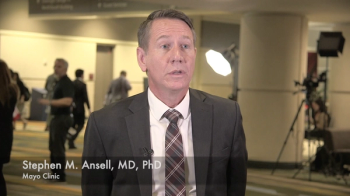
The Mayo Clinic expert highlights exciting advancements being made in chimeric antigen receptor T-cell therapy for blood cancer.
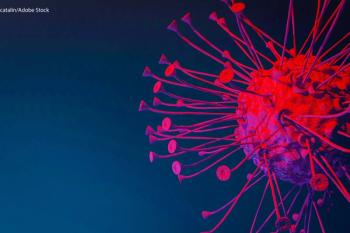
Tanya Siddiqi, MD, discussed the CAR T-cell trial ahead of the ASH Annual Meeting & Exposition in an interview with CancerNetwork®.

Robert A. Brodsky, MD discussed the study of a first-of-kind multi-antigen targeted off-the-shelf chimeric antigen receptor- natural killer cell therapy with engineered persistence that will be presented at the ASH Annual Meeting & Exposition.
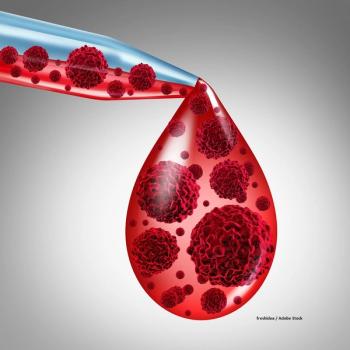
Research on chimeric antigen receptor T-cell therapy to be presented at the ASH Annual Meeting & Exposition is set to address drawbacks associated with treatment.
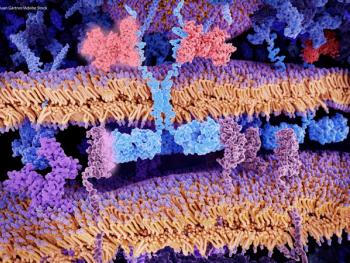
The University of Texas MD Anderson Cancer Center and Takeda Pharmaceutical Company Limited have entered an exclusive license agreement and research agreement to develop and market chimeric antigen receptor-directed natural killer-cell therapies.

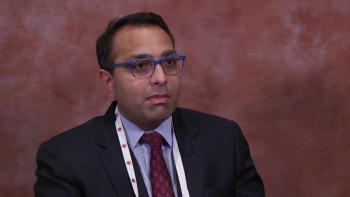
This video highlights research that found that single-cell RNA sequencing can better characterize patients and potentially improve multiple myeloma treatment in a more personalized manner.
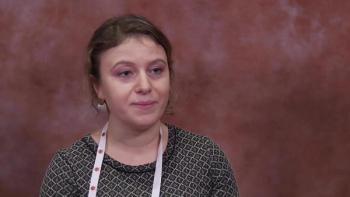
This video highlights a study that establishes mutated CALR as a myeloproliferative neoplasms–specific tumor antigen and provides a rationale for the development of immunotherapies targeting mutated CALR.